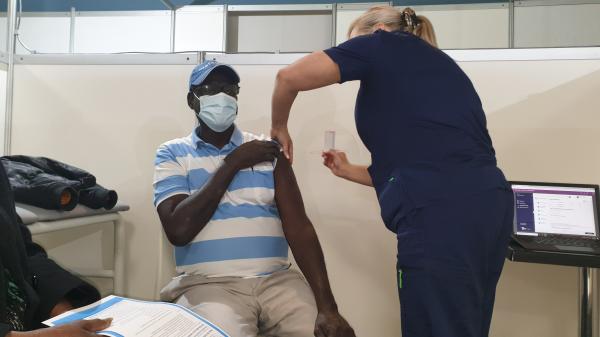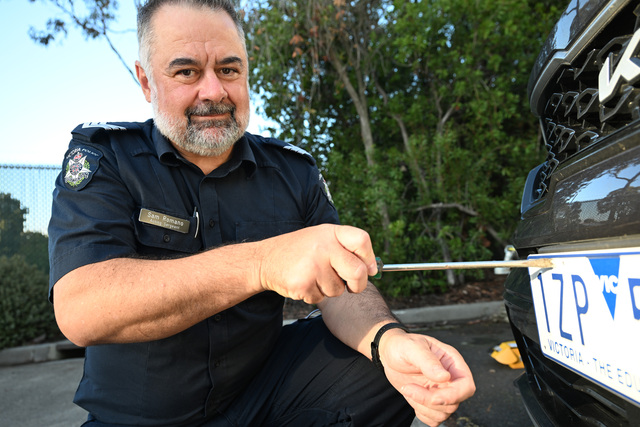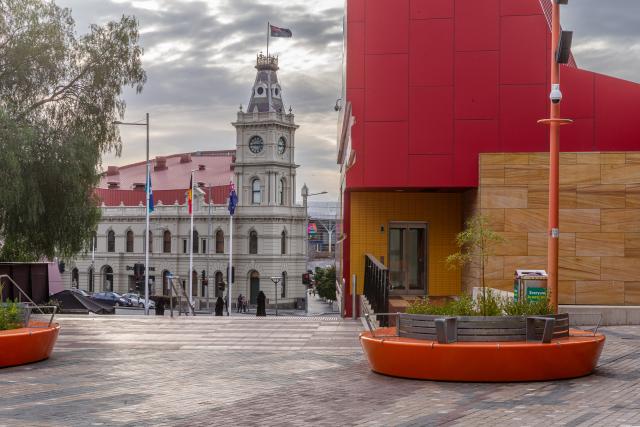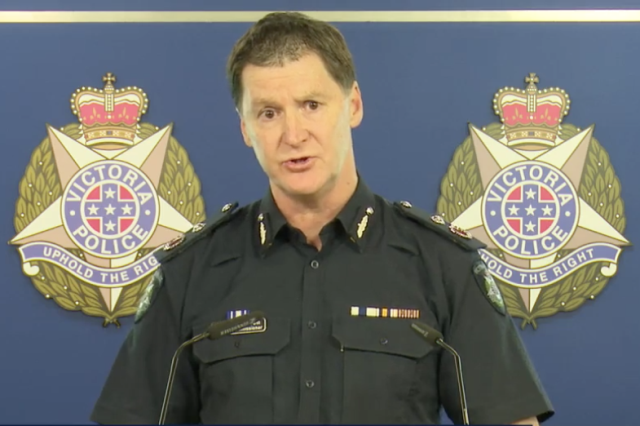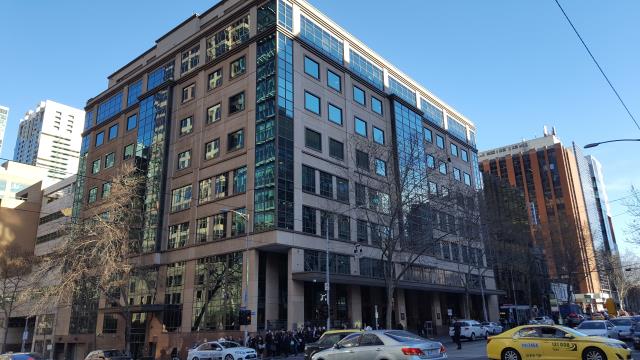Overwhelmed GP clinics are calling for more incentives to encourage a wider Covid vaccine rollout.
The Federal Government is ramping up supply in Victoria, where long queues at vaccine hotlines and mass vaccination centres have formed during its latest Covid outbreak.
On 3 June, Keys Medical Centre reported it was running short of doses and postponing vaccine jabs as a result.
The centre is supplied with 200 AstraZeneca doses a week. But within a few days, it had just 10 left in its fridge as of 3 June.
Patient jabs scheduled for the next day had to be moved to the following Monday.
Keys Medical Centre is one of a limited number of GP clinics to have registered to administer the AstraZeneca vaccine. There’s nine listed in the Greater Dandenong region.
Clinic manager Riekie Jooste said she was unsure if other GP clinics would sign on because of the hassle, paperwork and expense.
The clinic has hired an extra receptionist to cope with the calls from patients across Melbourne. It’s a cost that the clinic had to absorb.
“It has a massive impact on the financial side for us.
“What the (Federal) Government is paying is no benefit to us. We’re just doing it to supply a service to the community.”
In the meantime, the clinic was overwhelmed by phone calls and walk-ups from people wanting the vaccine. It’s booked up for several weeks.
Pfizer was often requested, but had yet to be rolled-out to GP clinics, Ms Jooste said.
Another GP clinic in the region reported a “mad rush” for vaccines since lockdown. Demand had soared from 30 a week to about 30 a day, a clinic manager said.
“We’re fully booked up until mid-July.”
The manager, who wished to be unnamed, said more GPs were needed to help the rollout.
“It’s a lot of hard work for little reward. That’s why (general) practices have dropped out.”
The clinic was also dealing with increased “horrific” abuse from citizens, especially during the latest lockdown.
Staff had been forced to eject some “violent” visitors from the building.
“From a GP’s point of view, what does the lockdown do to the mental health and social health of people?
“It’s absolutely horrific. I do understand why people’s stress levels are where it is but it doesn’t give them the right to act violently.”
Ms Jooste says Victoria needs a Covid management system that “works”. During lockdown, patients are telling of family break-ups, loss of livelihoods and suicidal thoughts.
On 6 June, Federal Health Minister Greg Hunt announced an extra 100,000 Pfizer doses to Victoria over the next three weeks.
AstraZeneca supplies to Victorian GPs will double over the next fortnight from 115,000 to 230,000 doses.
“All of the states and territories are managing their inventory well. And so that’s the recognition on that side.
“In relation to the AstraZeneca, the GPs are doing an incredible job.”
“They do have demand, and whilst that demand is there … we have the capacity to meet that demand from within the existing national orders.”
Mr Hunt said Victoria had administered 613,00 doses from about 980,000 supplied.
“But this week, they will work through some of that inventory, and so therefore we’re providing the additional 100,000, which is for 50,000 people to have both first and second doses.”
Mr Hunt noted 58 per cent of over 70s in Victoria have been vaccinated. More than 42 per cent of over 50s had received a vaccine.
Days earlier, Victorian Chief Health Officer Brett Sutton said vaccine supply have been a “constraint” at the mass vaccination centres such as Sandown and Cranbourne.
About 71,000 Pfizer shots had been supplied to Victoria’s mass vaccination hubs a week.
Available AstraZeneca supplies were even less in the mass vac centres due to about half being reserved for second doses and GP clinic vaccinations, he said.
The AstraZeneca supply would need to “step up” as second doses were due in coming weeks.
He said an online booking portal or extra call-centre staff would not hasten the rollout. The state vaccination program was “pretty full” of call-centre bookings as well as walk-ups.
“There are limits and supply is one of them.”
He advised people to “shop around” GP clinics offering vaccinations.
Australian Medical Association president Dr Omar Khorshid said GPs needed more government funding to provide advice to “vaccine-hesitant” patients.
“These patients require more time with their GP; however, the current Medicare structure only supports very short consultations.
“This is discouraging patients and GPs alike and slowing down our roll out through general practice.”

